Graham Reid | | 7 min read
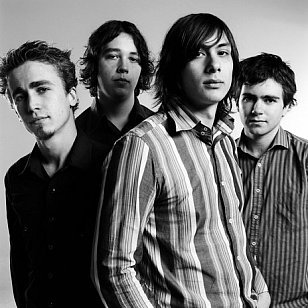
Small gestures can be illuminating.
After an hour-long conversation, betchadupa singer-songwriter Liam Finn and drummer Matt Eccles get up to leave the sunny boardroom of their Auckland record company. On the way out Finn automatically picks up the water glasses to take them back to the kitchen.
His parents should be proud of this thoughtful young man, not just because their boy has manners but because he comes across as natural, likeable and unaffected by the family association that could be crippling in a small, cynical country such as this.
Liam Finn - whose dad is Neil and uncle is Tim - chats amicably, answers questions while maintaining steady eye contact, laughs frequently, and isn't above admitting when he doesn't know something. These are rare, and endearing, qualities in rock'n'roll.
And Eccles, whom Finn has known for eight years, is much the same, if more reserved.
He's the son of drummer Brent, whose career dates back to Space Waltz in the early-70s, Street Talk and Citizen Band in the latter part of that decade, and Australian rock band the Angels in the 80s and 90s.
With bassist Joe Bramley and guitarist Chris Garland - all of them 18 - they are betchadupa, although in the first few minutes it's evident Finn does the band's talking. He may not have learned the art of the soundbite, but he is articulate beyond his years and is enthusiastically ambitious for the band and its music, most of which he writes. But he also stops apologetically if he cuts across Eccles.
At one point they disagree, each listens to the other's viewpoint, and then reconcile their opinions. That's what happens when you've known someone half your talking life.
Now, after two EPs and extensive live work here and in Australia in the past two years, they are about to release their debut album, The Alphabetchadupa. So there's plenty to talk about, and the famous families thing doesn't even come up in the first half hour. So let's dispense with it, then move into more interesting things, such as betchadupa's remarkably mature music.
"It's interesting to go to Australia and see how journalists over there handle it because Matt's dad has got quite a reputation through the Angels," says Finn. "His dad's more famous over there. Every interviewer always goes, 'Now I'm sure you always get asked this and I'll try not to linger on it too long ... ' Then they'll ask the question. They all say that."
"I guess it's just them being polite," says Eccles who, like Finn, still wears the puppy fat of his teenage years. "But New Zealand is very cynical for its size, very much so," he adds with a bemused smile.
So maybe having famous dads has actually been a hindrance?
Finn considers, then measures his words: "I don't think so. Sure, there are downsides, but at the same time we've had great opportunities and we've been really working hard not to use the last names to further our career. But we know there's always going to be immediate interest because of them."
"The hardest thing," says Eccles, "is people expect what you are going to be like, maybe you'll be [musically] good, or arseholes, or something."
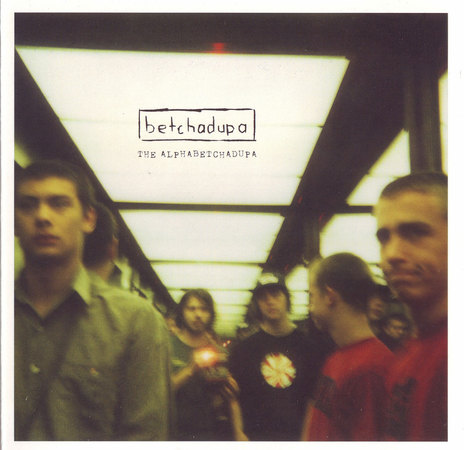 "You can't say it's been hard," says Finn, "without looking like you're not thankful for the good things. It's obvious it's going to be a good thing. We've always known it was going to be a big deal, but it's something we've got to get through and prove that we can do it on our own. If it's not there in the music, no matter who your father is, people won't be fooled."
"You can't say it's been hard," says Finn, "without looking like you're not thankful for the good things. It's obvious it's going to be a good thing. We've always known it was going to be a big deal, but it's something we've got to get through and prove that we can do it on our own. If it's not there in the music, no matter who your father is, people won't be fooled."
In that regard betchadupa have certainly got it. Their self-titled EP released in early-2000 sprung the radio hit Empty Head which gathered mainstream and student radio play and was nominated for a Silver Scroll songwriting award.
At last year's music awards they were named top new act, and their second release, The 3D EP, was nominated as best rock release at the student radio awards last year.
The band have played three Big Day Out gigs here and one in Australia, played orientation shows, recorded a reworking of the old Split Enz classic Dirty Creature (written by Uncle Tim) with King Kapisi and, most visibly, joined Neil Finn's five-night stand at the St James last year alongside Pearl Jam's Eddie Vedder, guys from Radiohead and Johnny Marr, formerly of the Smiths.
And if they didn't have the music ... betchadupa take care of that. Finn writes precociously mature ballads, has inherited his father's love of melody ("that's very important") and they shift effortlessly from flat-tack rock'n'roll to acoustic songs. Perversely, Finn says, they played acoustic stuff at the Big Day Out last year when they should have rocked, but they wanted to portray who they are honestly.
It has been intelligently handled, incremental growth. Yet, while major labels expressed mild interest early on, they hitched themselves to Flying Nun, a label then conspicuously in decline, with its most important artists of the 80s and 90s signed to other companies and with new acts such as hard rockers the D4 having already established themselves outside the Nun imprint.
"In a way we wanted to be more like D4 than a Zed or stellar," says Finn. "We were going to release an EP independently and weren't that knowledgeable about the [Nun] legacy, but they just had the right idea of what we were doing, just taking it slowly. We didn't want to be branded into people's faces immediately for them to like or not."
They have signed each EP and the forthcoming album as one-off deals and took advice from their wise and wary parents. They own their own masters and publishing.
They admit, too, that the first EP comprised just well-recorded demos written when Finn and Eccles were getting to know each other musically. Now they speak about the intuitive understanding they have developed as a result of touring, and how the album was the first time they really felt they recorded as a band.
As with the EPs, the album is admirably diverse but also keeps to the simple format of two guitars, bass and drums (with a few overdubs) to reflect what they're like live. Finn says some of the songs were worked out last year on tour, but he didn't have words so would simply improvise them every night.
"It was useful because you got to see the reaction to what parts worked live and so we took that information into the studio."
Repeatedly in the conversation they talk about how they've grown as a live band.
"I know," says Finn, "if I'm not into a show I try my hardest to make it look like I'm into it because you're an entertainer and that's what you are there to do."
The notion of entertainment is welcome, especially when they are on a label that had some bands which wilfully ignored the audience and brought shoe-gazing to new depths of introversion in the 80s.
"There are good arguments for music just being art or a personal thing," says Finn, "but people have paid to come and see you because they like the band. A lot of the appeal of a band is what they do visually and what kind of personality the band has of itself. When people have paid, I believe you have a responsibility to give them a good show. I'd hate to go and see a band that looked bored."
Eccles adds: "How a band interacts with each other is important for an audience. On this last tour in Australia some nights we were not playing to many people at all, but we do the same show with the same energy every night."
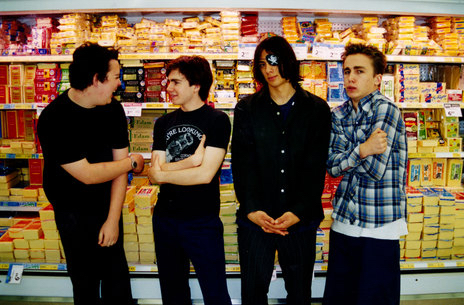 There's no doubt betchadupa have considerable stagecraft these days, some of it picked up from the likes of Eddie Vedder, whom they watched from the side of the stage for five consecutive nights and then played with.
There's no doubt betchadupa have considerable stagecraft these days, some of it picked up from the likes of Eddie Vedder, whom they watched from the side of the stage for five consecutive nights and then played with.
"You see how a really amazing performer works," says Finn. "I'd always been scared to play with the crowd to make them get excited. In my head I thought it might be a bit wanky to go out there and go 'Yeah' or clap your hands above your head. But what I've learned is if you do it and are confident, it's not going to look dicky.
"The crowd feeds off what you're doing and doesn't think you're a dick. They actually see you're into it and want to come with you. It's taught me how to be a frontperson better. I still get nervous before going on, but I would never not want to be nervous."
If they have matured on record and stage they also have an adult attitude to the business they are in, picked up at fathers' knees no doubt. They speak unselfconsciously about "high rotate" (most New Zealand bands seem reluctant to admit they know the politics of radio) and, by being self-managed, understand the business of contracts and promotion.
Yep, there are famous fathers - we joke about why no one asks about their mums who have doubtless been equally influential - but betchadupa have slogged it like any other young band.
"We've done the small shows and slowly built an audience who really like the band," says Finn.
They speak about their ambitions: the album gets Australian release in June and there's always America. But they want to crack that by themselves.
Finn: "We didn't want to get my dad to go and say, 'This is my son's band.' He could definitely do that and is willing if we want, but he also thinks it's important to stay out of it as much as he can. Then again, that's how America works.
"But I can use the contacts I've made through dad. Maybe it's the same thing, but they are my contacts and that's a great help.
"Hopefully by the end of the year we could have something in place, but who knows? We've got the energy now, so why not use it? But it really feels the right time to release a record and be a band in New Zealand."
And there we leave it with handshakes. It's been less an interview than a conversation.
And Liam picks up our glasses and takes them back to the kitchen.

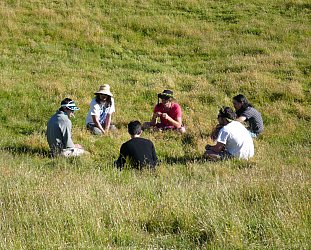
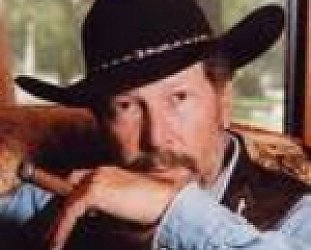
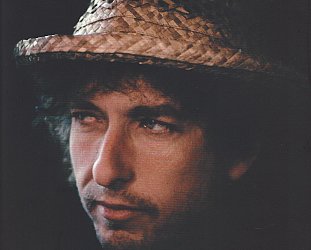

post a comment